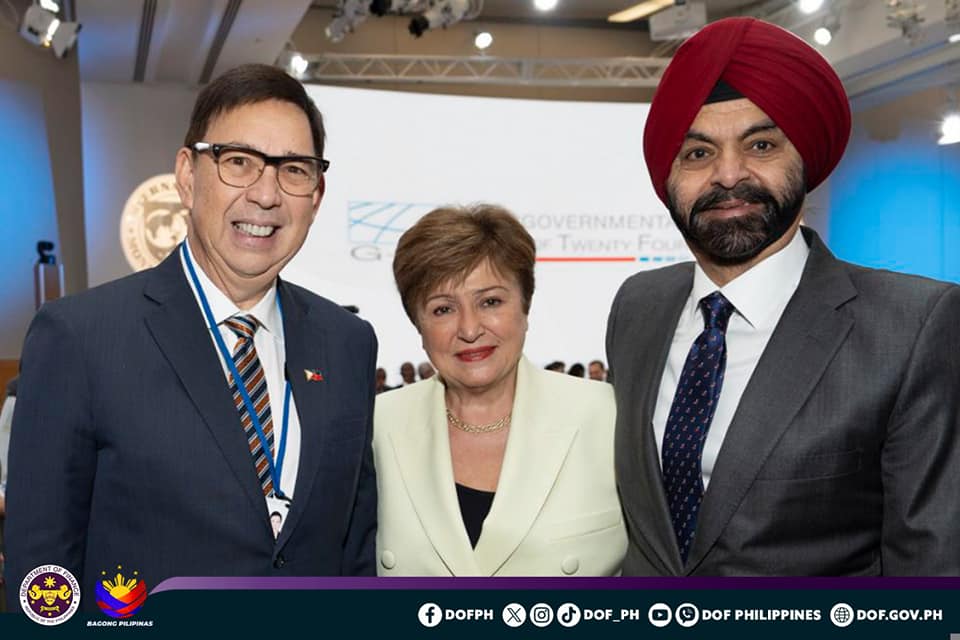The government’s experience in 2009 of a massive erosion in revenues as a result of the Congress’ failure the year before to approve a revenue-neutral package in its entirety underscores the necessity of passing the proposed Comprehensive Tax Reform Program (CTRP) of the Duterte administration in full or as one package.
Sharing her “sad experience with tax reform,” former president and now Pampanga Rep. Gloria Macapagal Arroyo cautioned the Congress against passing the Duterte administration’s CTRP’s provisions separately instead of as a package.
She recalled that in 2008, when she asked the Congress to pass a revenue measure to fund her request for a supplemental budget, the legislature only passed the tax-eroding provisions the following year and did away with the portion that would have offset the revenue loss.
As a result, the government lost P14 billion in revenues, Arroyo told members of the House ways and means committee during its hearing on the proposed CTRP.
“From my experience as former president, [I believe that we should] pass it (the CTRP) as a package,” Arroyo told the committee chaired by Rep. Dakila Carlo Cua.
In 2008, Arroyo said she had requested the Congress for a supplemental budget to help fund programs designed to rebuild communities devastated by strong typhoons that year.
Under the Constitution, a supplemental appropriations bill should be supported by funds available in the National Treasury or by funds to be raised through a corresponding revenue proposal.
Arroyo said at that time, Malacanang asked the Congress to approve a simplified net income taxation bill as the corresponding measure to the supplemental budget.
The bill aimed to help curtail tax evasion among the self-employed and professionals, and generate an additional P11.8 billion in tax revenues.
Arroyo said concerns about the bill being regressive prompted the introduction of a complementary measure that would make this proposal progressive by exempting minimum wage earners from paying income taxes.
“To put a progressive element, we put in the package the exemption for minimum-wage earners. What happened was that the exemption was passed and increased beyond what we proposed, and a simplified net income taxation was not passed,” Arroyo said.
“So what happened? Instead of a revenue-neutral bill that would have allowed constitutionally the supplemental budget, we ended up with a tax erosion of P14 billion,” she said.
The simplified net income taxation bill was approved by the House of Representatives on third and final reading, but was abandoned by the Senate, which instead passed only the tax relief measure for minimum wage earners. The House eventually adopted the Senate version.
Arroyo’s words of caution apparently helped members of the House ways and means committee come to a decision of approving the first package of the CTRP as a package during the last hearing held on March 14 before the Congress went on its traditional Lenten break.
The first package of the CTRP aims to lower personal income tax (PIT) rates, while at the same time, providing for a corresponding set of revenue enhancing measures, among them the adjustments in the excise taxes on fuel and automobiles and the expansion of the VAT base but keeping exemptions for seniors and persons with disabilities.
Finance Secretary Carlos Dominguez III said the decision of the committee to pass tax reforms as a package rather than on a piecemeal basis is a step closer for the Congress to help the Duterte administration fund its ambitious agenda to sustain the high-growth momentum, dramatically cut poverty and transform the country into a high middle-income economy by 2022.
The House ways and means committee chaired by Cua, who introduced the first package of the CTRP to the Congress as House Bill No. 4774, also decided to create a Technical Working Group that would draw up a substitute bill consolidating the proposed reforms of the Duterte administration with other tax-related proposals by the lawmakers.
This move by Cua’s committee has put to rest earlier concerns that lawmakers might only approve the bill’s highly popular provisions, which is the lowering of the personal income tax (PIT) rates, without the corresponding measures that would enable the Duterte administration to offset the expected revenue erosion and still raise sufficient funds for its ambitious public investment program on inclusive growth.
Dominguez said that “congressional action on the first phase of the DOF-proposed CTRP would help create a strong buffer that will insulate the country from the surge of protectionism now sweeping across the globe, and thereby keep the economy on its targeted annual expansion of 7 percent or better.”
“By doing so, the Congress would let the Duterte administration gain headway in its ambitious medium-term agenda to keep the country among Asia’s fastest-growing economies, cut the poverty rate from 21. 6 percent to 14 percent, and transform the country into an upper-middle economy by way of investment-driven in lieu of consumption-led growth.”
Fortunately enough, he said, the majority of the House committee members have apparently seen that the domestic economy is in its golden moment, and that, “If we fail to seize it, the conjuncture of opportunities will pass us and we will betray our people.”
For the government to attain its ambitious goal, he said the Congress needs to pass this tax reform package that is designed to raise an additional P718 billion for education, P139 billion for health, P267 billion for social protection, welfare, and employment, and P1.73 trillion for urban and rural infrastructure.





